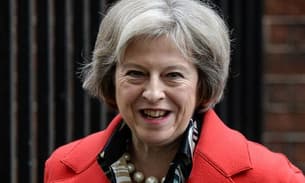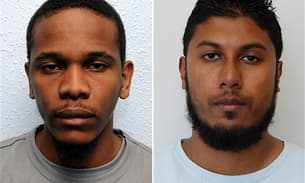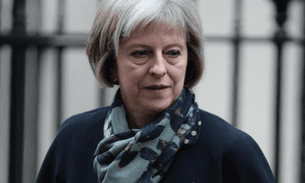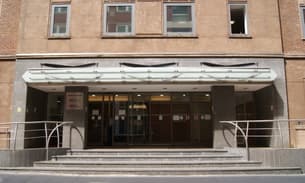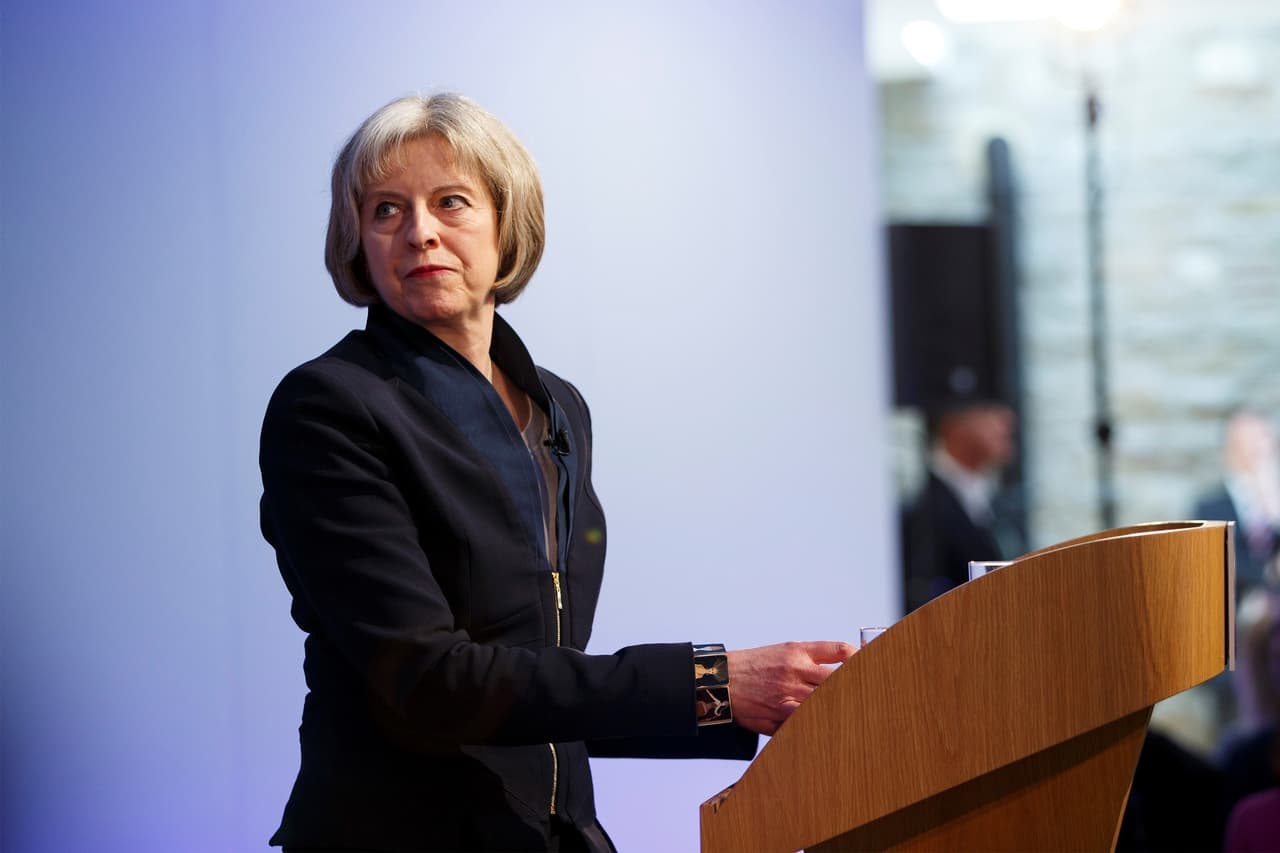
Court fight for May as alleged al Qaeda courier re-enters UK just weeks after she revokes his citizenship
Home Secretary Theresa May (Photo: Tolga Akmen/Anadolu Agency/Getty)
An Afghan granted British nationality just four years ago has been stripped of his citizenship by Theresa May over alleged links to al Qaeda, the Bureau has discovered.
The man, known only in court as M2, had his passport cancelled and his citizenship annulled while he was in Afghanistan in May last year. He was declared a national security risk but embarrassingly for the Government he has since managed to return to the UK and now lives under strict bail conditions in London.
The Government, which now has a lengthy and costly legal fight on its hands to remove him, claims he was to act as a courier for Islamist extremists in Afghanistan – allegations he strongly denies.
He was awarded British citizenship in 2011 having arrived in the UK in several years earlier as a minor. After being served with a deprivation order annulling his British nationality in May last year, he used his Afghan passport to return to London to try and overturn the Home Secretary’s decision.
He is the first individual stripped of British citizenship known to have returned to the UK.
His case emerged last month at a four-day hearing of the Special Immigration Appeals Commission (Siac), where he is appealing Theresa May’s decision. Throughout the hearing, he sat freely in the public gallery.
M2’s ability to return to Britain raises questions about a key but controversial pillar of the Government’s counter-extremism policies. Home Office minister James Brokenshire told Parliament in March that 28 people have been deprived of their citizenship since 2010 on the grounds they are “not conducive” to the public good.
The Bureau has been tracking the use of deprivation orders by the Government as part of an investigation into citizenship stripping. This is a process that allows the Home Secretary to remove UK citizenship and passport rights from foreign-born, naturalised individuals on national security grounds, even if it renders them stateless. Dual nationals who were born in Britain can also have their citizenship revoked.

Much of the evidence underlying the deprivation orders is only disclosed in closed sessions of Siac hearings, meaning not only is the public unable to examine the entire case but also the defendants themselves.
M2’s ability to sit and watch his appeal is highly unusual. There are two known cases where people have been in the UK at the time their citizenship has been stripped on national security grounds, but had been remanded in Belmarsh throughout the process.
In many other cases, the Home Secretary also issued orders banning ex-citizens from returning to the UK at the same time as revoking their nationality. On at least one occasion she deliberately waited until the individual, a Sudanese-born man, had left the UK on holiday before revoking his citizenship and preventing him from returning.
At last month’s Siac hearing, Mr Justice Irwin was told that M2 arrived in the UK as a minor. He was was given indefinite leave to remain before securing citizenship in 2011.
The Home Secretary now alleges he has links with extremists in Afghanistan – although he has never been charged, let alone convicted of any offence.
Much of the evidence against him has only been heard in secret due to national security reasons. Neither he nor his own barrister have even been allowed to hear it.
During the open sessions, M2’s relationship to one of his cousins in Afghanistan emerged as a key issue in the case.
The court was told that in 2011, the cousin’s house was raided by Afghan and Allied forces. The cousin was not there but several of his brothers were arrested, one of whom was then detained in military custody for two years.
M2 claims he did not learn about this raid until 2013. In that year, the court heard, M2 made what the Home Office believes was the first of two suspicious trips to Afghanistan.
According to M2’s witness statement, M2 fell ill in Afghanistan and needed the help of a doctor in a city in Pakistan.
He stayed in the city with another relative for between two and four days. M2 said while he was there, he discovered that his cousin was also living there and went to meet him.
Tim Eicke QC, for the Home Secretary, said this account went to the heart of M2’s credibility. He said it was “incredible” M2 had not known his cousin there and that he had clearly planned to see him.
Due to the secret nature of some of the court hearings, it is not clear whether Britain’s security services regard M2’s cousin as an extremist.

Hugh Southey QC, for M2, told the tribunal there was nothing in the open evidence to suggest his client had anything other than a normal family relationship with his cousin. Evidence of anything else was “fairly flimsy”, he said. M2 also says it was only after his visit to Pakistan that he learned about the 2011 raid.
In early 2014, M2 made plans for a second visit to Afghanistan, the court heard.
Southey told Mr Justice Irwin that in January 2014 M2 learned his mother was ill and immediately applied for a visa for Afghanistan. He travelled to the country and took with him a laptop and an iPhone.
Southey said M2 gave the laptop to a local doctor in his home town and the phone to his brother as a gift. The barrister said because such technology was hard to find in Afghanistan M2 thought it made sense to give them away.
But Eicke said M2’s evidence was “completely lacking in credibility” and that his trip was planned before his mother fell ill, noting his visa application was dated two days before she was admitted to hospital.
Home Office lawyers do not dispute the doctor and the brother received the electronic items, but they allege the true intent of the visit was to courier them to Afghanistan from the UK on behalf of extremists. They said that after M2 was stopped and searched by police on his arrival in Afghanistan, he “repurposed” his intent for the items because he knew they would then be traceable.
It was during this trip that the Home Office took action.
While still in Afghanistan, the Home Secretary served M2 with a deprivation order. The tribunal heard that he was given a Home Office number to call and less than a month later he spoke to Philip Larkin, head of a unit within the Office for Security and Counter Terrorism.
Giving evidence at Siac, Larkin said M2 expressed during the phone call that he was keen was to return and contest the decision. But Larkin told him he could no longer travel on his British passport and if he wanted to return he would have to make a fresh visa application.
However, M2 still had “indefinite leave to remain” stamped in his Afghan passport and flew back to Britain via Pakistan. The Home Office argued his indefinite leave was cancelled with the deprivation order and so he entered the UK illegally.
On arriving in the UK, he was placed in a detention centre before being freed at a bail hearing last December.
He has been living in London since.
When asked by Southey whether M2 was known to the security services before he went to Afghanistan in 2014, Larkin said: “I can’t answer that question in open [court].”
M2: The first known to return
Most deprivation orders signed by the Home Secretary are served on individuals when they are outside the UK.
This makes it very difficult for an individual to clear their name. There is a limited window of appeal, and instructing a legal team in the UK from a country like Sudan is difficult.
Individuals are also vulnerable without the protections and rights that British citizenship gives. Two men stripped of their citizenship were later killed by US drone strikes in Somalia, and one was secretly rendered to New York before being held in solitary confinement for more than two years.
The Home Office has previously denied that making the deprivation order while individuals are abroad is a tactic to keep them out of Britain.
In M2’s case, Home Office manager Philip Larkin told the court a deprivation order was not being considered before he left the UK in 2014.
But M2’s barrister Hugh Southey QC said in court: “It seems a bit of a coincidence they deprived him when out of the country.”
Research by the Bureau in 2014 found that of the 18 identified individuals deprived of their citizenship since 2006, at least 15 were abroad at the time of the order.
M2 has been living under demanding bail conditions since last December.
He wears an electronic monitoring tag, is barred from speaking to anyone unless it is pre-approved by the Home Office, and is subject to a strict curfew. This, Southey said, showed how much M2 wished to regain his British citizenship, adding it also meant it was extremely likely he would want to avoid all links with extremism.
Southey suggested that if the commission took the view that M2 was in fact a threat to national security, then another measure such as a TPIM or passport removal would be a better measure than depriving M2 of his citizenship.
Southey said M2 did not want to live in Afghanistan because it is an “essentially chaotic society”.

The Home Secretary’s lawyers said that M2 had only been cooperative so far as “to let him get away with it”.
Eicke told the tribunal that a TPIM on M2 would not be sufficient because of the threat he poses.
The tribunal also heard that M2’s lawyers had concerns over some of the evidence which had come from Afghanistan. They suggested some of the human intelligence could have been obtained through torture.
They also raised the concern that some of the allegations against M2’s relatives could be false.
Siac chair Mr Justice Irwin will make a judgment in the coming months but did not specify a date.
One of the most controversial aspects of Siac proceedings is its use of closed evidence. When the Home Secretary’s decision is based on intelligence she does not want revealed in open court – such as reports from the security services or information from informers – it can be heard in secret. In a closed hearing, only the Government lawyers, the judges, and the special advocates are present. The defendant’s legal team and any journalists or members of the public have to leave the courtroom, the door of which is then locked. A special advocate is a security vetted lawyer who is supposed to represent the defendant’s interests during the closed hearing. Once they have heard secret evidence, they aren’t allowed to talk to the defendant’s lawyers or their client. In the M2 case, the allegations against his cousin have never been made in open court. A security service witness known as HP admitted this meant that based on what had been heard in court by M2 and his lawyers, there was no evidence to suggest M2’s cousin was an extremist. Southey summed this up by saying that in national security cases such as this, the open evidence may be just the “tip of the iceberg”.
‘Tip of the iceberg’
A version of this story was also published with the Guardian
Follow Victoria Parsons on Twitter. Read the Counter-Terrorism investigation here and sign up for email updates on deprivation of citizenship here.

